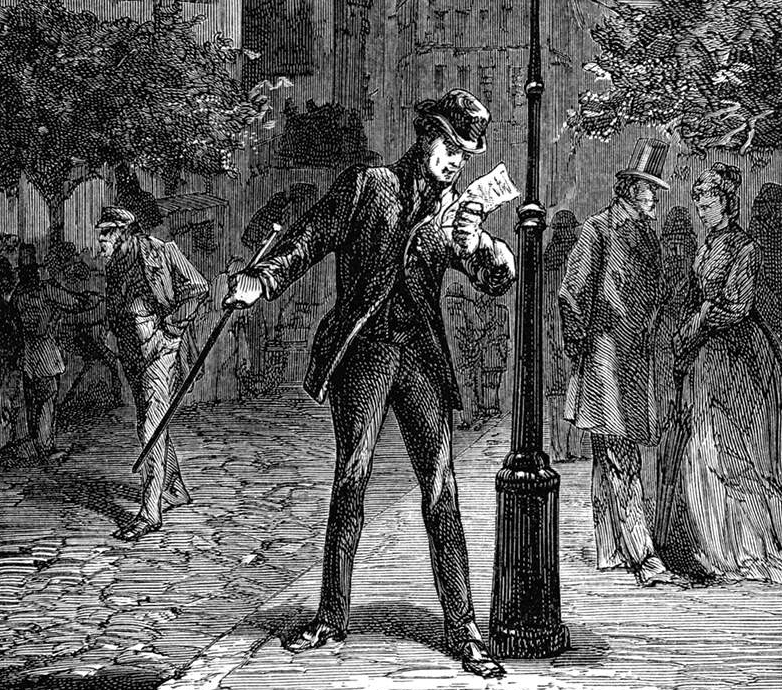Representation Letters in Criminal Practice - Part 1
What they are, and whether to send them before a charge is made.
In criminal practice, there is something called a ‘representation’. (Or more affectionately: ‘rep’.)
A ‘Representation’ refers to the particular statements a person puts forward to the prosecution, explaining his case. With it, he hopes to not be charged or prosecuted.
A representation can be done at various stages, and will be based on an accused/suspect’s instructions.
In this article, let’s discuss what ‘representation’ means, with reference to the stage before charges are made. (See footnote for scope of article.)

Representations - During Investigation
The police are always on the lookout for clues and strong evidence. Their investigation may benefit from any new documents or leads.
So at this pre-charging stage, a representation comes as a show/gesture of cooperation, with hopes that the police will not arrest or charge the suspect/accused. Two kinds of representation can generally be made at this stage:
-
One is where defence counsel offers his client to the prosecution as a cooperative witness.
-
Another type of representation is by a witness statement, where the client states his factual position in the ongoing investigations.
Why Give Representations
A common question: why would a suspect or accused give representations, when he can just defend himself at trial if he is not guilty?
Consider the following:
-
Police investigations are not easy. During investigations, the police may only have few documents. The quality of their evidence could also be poor. Your client’s answers may fill in the gaps, which strengthens the investigation, and will help guide the prosecution’s narrative.
-
Obstruction of justice is a crime. Your client’s attitude should principally be that to assist, and not to prohibit, police investigation. Generally, a client who offers representations may be (seen to be) more forthcoming and proactive. The idea is that if the accused has nothing to hide, then he should not fear investigations (which may not even lead to a charge).
To Whom Are Representations Made
In Malaysia, the government’s investigative/prosecuting agencies have a certain hierarchy.
-
Every case will have an investigating officer (‘IO’).
-
It is that IO who investigates the case, and then submits his investigations to the Deputy Public Prosecutor (‘DPP’).
-
It is then the DPP who decides whether to charge or not to charge a person in a case, and as to whether the case has merits for prosecution.
-
In certain agencies, the IO and the prosecution could functionally come under the same ‘boss’/superior. When this happens, it is really the IO’s boss who calls the shots, and who has a major, if not de facto, influence on the decision to charge. In such cases, if you send it to the prosecutor first, it would be premature.
For the above reasons, in most cases, representations are addressed to the Head of the Criminal Investigations Department (Ketua Bahagian Siasatan Jenayah) or to an officer who is superior to the IO. Sometimes, defence counsel will make representations to the DPP, and/or to both the DPP and the IO. It depends.
Are Representations Detrimental?
Representations are not necessarily detrimental, but they can be a double-edged sword. Often you cannot predict what the police will do with your unsolicited information.
This is why it’s best to discuss your legal position with your defence counsel how to proceed with representations, and whether they are even necessary. Consider:
-
An interesting representation can sometime cause the investigator to want to record a further statement. Your client only stands to benefit if his further statement is recorded. Even if the prosecution later declines that representation, a defence counsel will already have gained one additional item in his arsenal (that recorded further statement) to deploy at the trial in his defence later.
-
It’s sometimes best not to make representations. Some agencies who believe in the ‘Alcontara doctrine’ expect your client to disclose all upon arrest (or in the case involving an investigative audit, even earlier). But if you include the entire criminal process as comprising three entities - i.e. the investigating agency, the prosecution and the court – the pre-charging stage is where the least accountable entity is the most powerful. The client needs to know this before giving too much trust to any one, even if he is innocent. Information can sometimes be misused.
-
By law, you cannot ask the IO to not charge your client. They do not make the call. They can only make recommendations to the DPP as to whether to charge or not. A defence counsel who couches his words appropriately should not cause harm to the client by politely addressing the representation to the IO’s superior at the investigation stage.
However here is where reality bites: sometimes the client or their family will become anxious and jittery. They will want to see you as defence counsel do something - anything - during investigation.
This is where client management skills are most important: the client should be made to focus on what is truly necessary for his defence. They must listen to your advice as counsel, and not those from their wise cellmates who may throw around words like “representation” without knowing what it really means, and how it could harm them.
Should Representations be Made Before a Charge
So should defence counsel make representations before the charging? The only view I can offer is this: ‘sometimes’.
-
Sending a representation before a suspect/accused is charged could be wrongly seen as interference - i.e. the prosecution/police may perceive that your client is trying to intercept the completion of the investigation papers. (The perception here really depends on the agencies involved.)
-
More likely than not, your representation would just be disregarded/ignored. Never assume that an IO will forward your client’s representation to the DPP.
-
But more practically speaking, as defence counsel: it is often unproductive to send a representation before before a client is charged. You often have little material to work with. You may not even be sure what the prosecution’s actual charge could even be, if one comes. Moreover, you do not want to unnecessarily tip the IO off or set him on a trajectory that exposes your client or their family to larger risks.
I will continue more with representations in Part 2.

